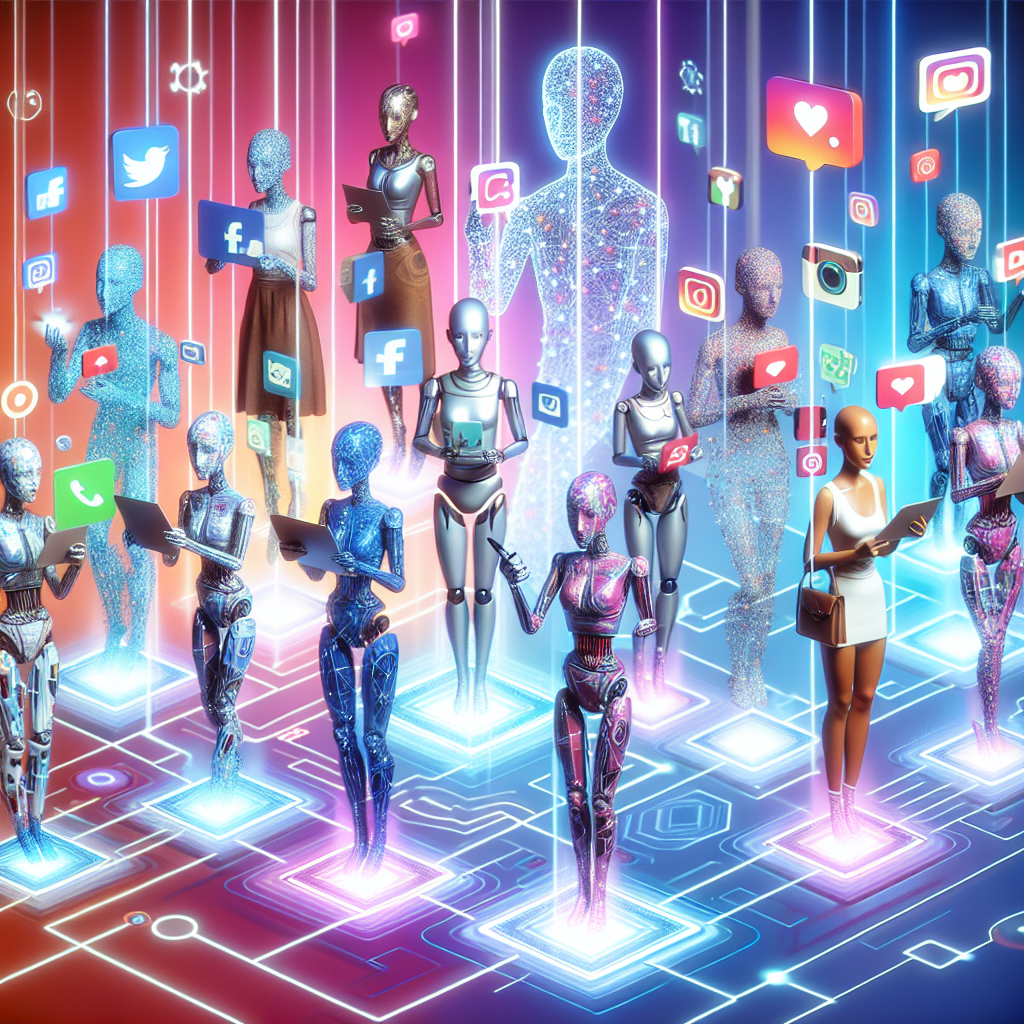In recent years, social media has become an integral part of our daily lives. From staying connected with friends and family to discovering new trends and products, social media platforms have revolutionized the way we interact with the world around us. With the rise of influencers on platforms like Instagram, YouTube, and TikTok, brands have found new ways to reach and engage with their target audiences.
But as technology continues to advance, a new type of influencer is emerging: AI influencers. These virtual personalities are created using artificial intelligence technology to interact with users on social media platforms. With their realistic appearances and engaging content, AI influencers are quickly becoming the next big thing in social media.
In this article, we will explore the rise of AI influencers, their impact on social media marketing, and the potential benefits and challenges they present for brands and users alike.
The Rise of AI Influencers
AI influencers first gained widespread attention in 2016 with the creation of Lil Miquela, a virtual influencer with a large following on Instagram. Since then, a number of other AI influencers have emerged, each with their own unique personalities and styles.
These virtual influencers are created using a combination of artificial intelligence, machine learning, and computer-generated imagery (CGI) to bring them to life on social media platforms. They can interact with users, post photos and videos, and even collaborate with brands on sponsored content.
One of the key advantages of AI influencers is their ability to work around the clock, engaging with users 24/7 without the need for breaks or downtime. This can be especially beneficial for brands looking to reach a global audience or target specific demographics.
Impact on Social Media Marketing
AI influencers have the potential to revolutionize the world of social media marketing. By leveraging the power of artificial intelligence, brands can create virtual personalities that resonate with their target audience and drive engagement and brand loyalty.
These virtual influencers can be used to promote products and services, share educational content, and even provide customer support. Their ability to interact with users in real-time can help brands build stronger relationships with their customers and create more personalized experiences.
In addition, AI influencers can help brands reach new audiences and expand their reach beyond traditional social media platforms. By collaborating with virtual influencers, brands can tap into niche markets and engage with users who may not have been reachable through traditional marketing channels.
Benefits and Challenges
While AI influencers offer a number of potential benefits for brands, they also present a number of challenges that must be considered. Some of the key benefits of AI influencers include:
1. Increased reach and engagement: AI influencers can help brands reach a larger audience and drive higher levels of engagement through personalized content and interactions.
2. Cost-effective marketing: AI influencers can be more cost-effective than traditional influencers, as they do not require payment for sponsored content or endorsements.
3. 24/7 availability: AI influencers can engage with users around the clock, providing a consistent and always-on presence for brands.
However, there are also challenges associated with AI influencers, including:
1. Authenticity concerns: Some users may be skeptical of AI influencers and question their authenticity and credibility.
2. Privacy issues: AI influencers raise concerns about data privacy and the potential for misuse of personal information.
3. Technical limitations: AI influencers are still a relatively new technology, and there may be limitations in terms of their capabilities and functionality.
FAQs
Q: Are AI influencers real people?
A: No, AI influencers are virtual personalities created using artificial intelligence technology. While they may look and act like real people, they are not actual human beings.
Q: How do AI influencers interact with users?
A: AI influencers can interact with users through social media platforms, messaging apps, and other digital channels. They can respond to comments, post updates, and engage with users in real-time.
Q: Can AI influencers work with brands on sponsored content?
A: Yes, AI influencers can collaborate with brands on sponsored content and endorsements. They can promote products and services, share brand messages, and engage with users on behalf of the brand.
Q: What are some examples of popular AI influencers?
A: Some popular AI influencers include Lil Miquela, Shudu Gram, and Bermuda. These virtual personalities have large followings on social media platforms and collaborate with brands on sponsored content.
In conclusion, AI influencers are quickly becoming the next big thing in social media, offering brands new opportunities to engage with their target audiences in innovative and engaging ways. While there are challenges associated with AI influencers, their potential benefits are vast, and they have the potential to reshape the future of social media marketing. As technology continues to advance, we can expect to see more AI influencers emerge and play a significant role in the digital landscape.

